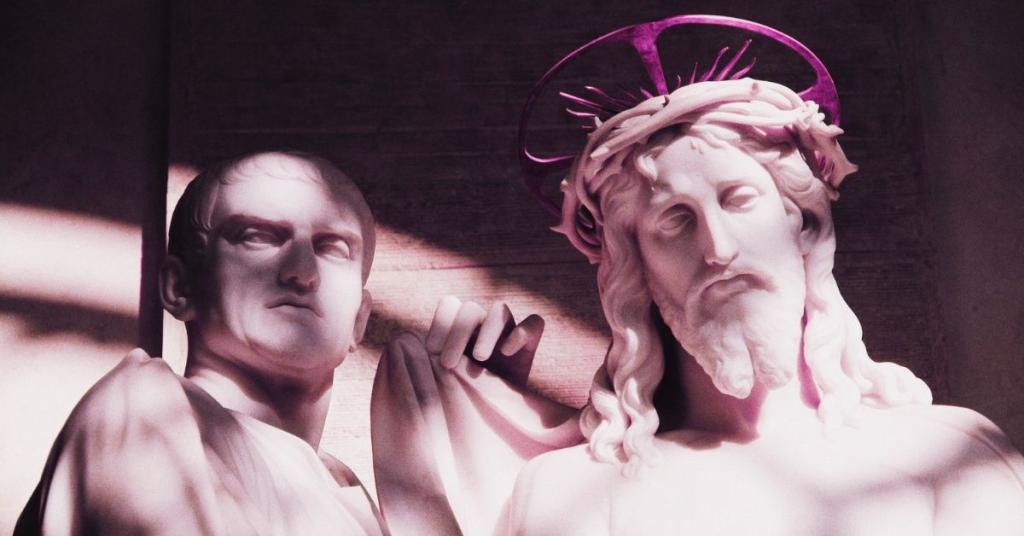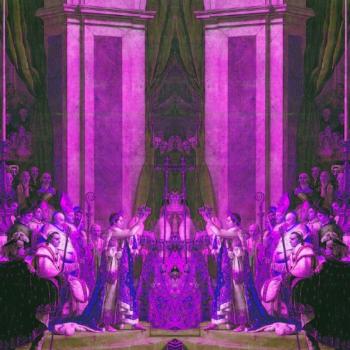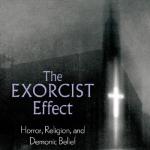
What is truth? Quid est veritas? Pilate’s question: Is it any different than ours? This curious query Pontius Pilate asked Jesus before giving him over to the crowd.
Given his position, we can speculate that Pilate may have had knowledge of Greek philosophical thought. It stands to reason he may have danced with philosohical notions of Socrates, Plato, and Aristotle. He would have been living and worshipping in the context of the Roman imperial cult. He would have seen meaning and success in power, colonisation, and wealth.
Presiding over exiled Jews in Palestine and doing the business of the Caesar. Pilate would have been familiar with various truth claims, their promises, and requirements. As each new revolutionary group that had their flash in the pan, he was no stranger to the quest for legitimacy.
Now another seeming insurgent stands before him with his life in the balance. I imagine Pilate must have rolled his eyes. A headstrong military man, rising to power as a knight, he made big imperial splashes wherever he went. He taunted the Jews and Samaritans with images of Caesar whenever he could. He knew how offensive and irreverent that would be. Taking all opportunities to provoke an already marginalised and disenfranchised people group. He sought to further diminish their laws and their rights almost for sport.
He wasn’t a stupid man. He was both rational and reasonable. But historical sources infer that he never knew how far was too far.
Here they stand. Jesus, Pilate, and the crowd. It is curious, given Pilate’s contempt for the Jews, that he endeavoured to honour their Passover tradition by giving up a prisoner. He brings to Jesus this claim, “King of the Jews.” Then, we can see from John 18, what seems like a clever little language game of wits ensues between them.
Jesus: Is that your idea? Or did someone talk to you about me?
Pilate: Am I a Jew? Your people handed you over. What have you done?
Jesus: My kingdom is not of this world. If it was my servants would be fighting my arrest.
Pilate: Ha! So you are a king!
Jesus: Well, you say that I am king. But I was born for truth. And anyone who listens to me is on the side of truth.
Pilate: What is truth…
Pilate had enough of the little back and forth. He was ready to get down to business. But not before he pauses for a moment and asks an infamous question. One that many have asked for the last 2,000 years.
Scholars suggest that he asked this is jest. Even with a hint of sarcasm. Tired of the claims and the question. “What is truth?” Then he turned to face the crowd for that fateful moment.
I have seen this question asked over and over again. As meaning is sought after and purpose searched out. It is the question that presents itself to post-Christian and post-God frameworks. What is Truth with a capital T? If not the God in the sky then what? There must be some underlying purpose to it all. There must be a structure that holds all things together.
The beautiful thing about the interaction between Pilate and Jesus is that Jesus does not admit to the accusation of king. Even in the midst of talking about a different kind of kingdom he does not acquiesce to such a charge. He speaks of truth instead. A truth he was born into and born for. He does not admit to a structure. He does not admit to people’s ideas of him. In fact, he doesn’t even refute them. He simply states his life was about testifying to truth.
Even with his life in the balance he refused entrapment by all the wrong questions that lead to dead ends. Questions that sought to fit him in the same old tired schemes of a world gone mad. A world that desperately needed to be made new. A world that was trying to put new wine into old wine skins. A world that had no imagination for new language. For ways of being that didn’t involve traditional methodologies and power structures.
Here Jesus doesn’t even dignify the question with a response. He speaks past it. And Pilate misses it by asking the wrong question in response. An old and dead question. A question asked many times before him. One asked many times since.
But Jesus invited him into a new dialog. But the old questions, that squelch imagination, blinded him to new life and thought.
Pilate’s question: Is it any different than ours?
I am often haunted by these moments in scripture. The make or break moments when so much is hanging in the balance. And the tip is always made when we give in to the temptation to revert to the past. It is always a devastating blow.
As we continue on in Lenten Season and move toward Good Friday, perhaps we can start to envision new questions. New queries as we imagine past what we thought was possible for our faith and how we attest to it in our lives. Unthinkable quests that make us feel foolish and vulnerable. Find the bravery for it all anyway. Even when certain deaths, things we can’t come back from, are on the line. Because this is the sort of faith we have dreamed about. And it is ours for the taking.


















